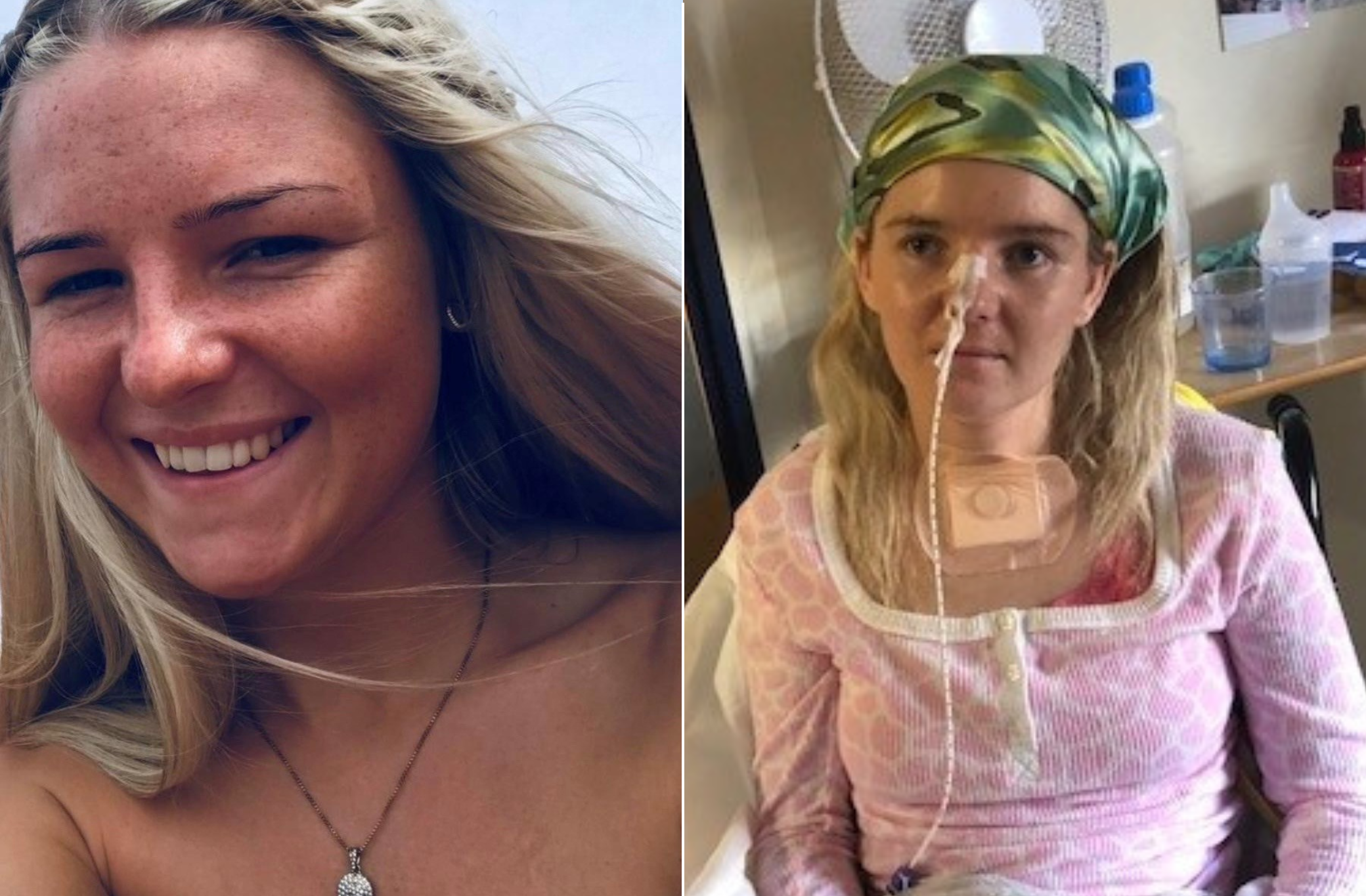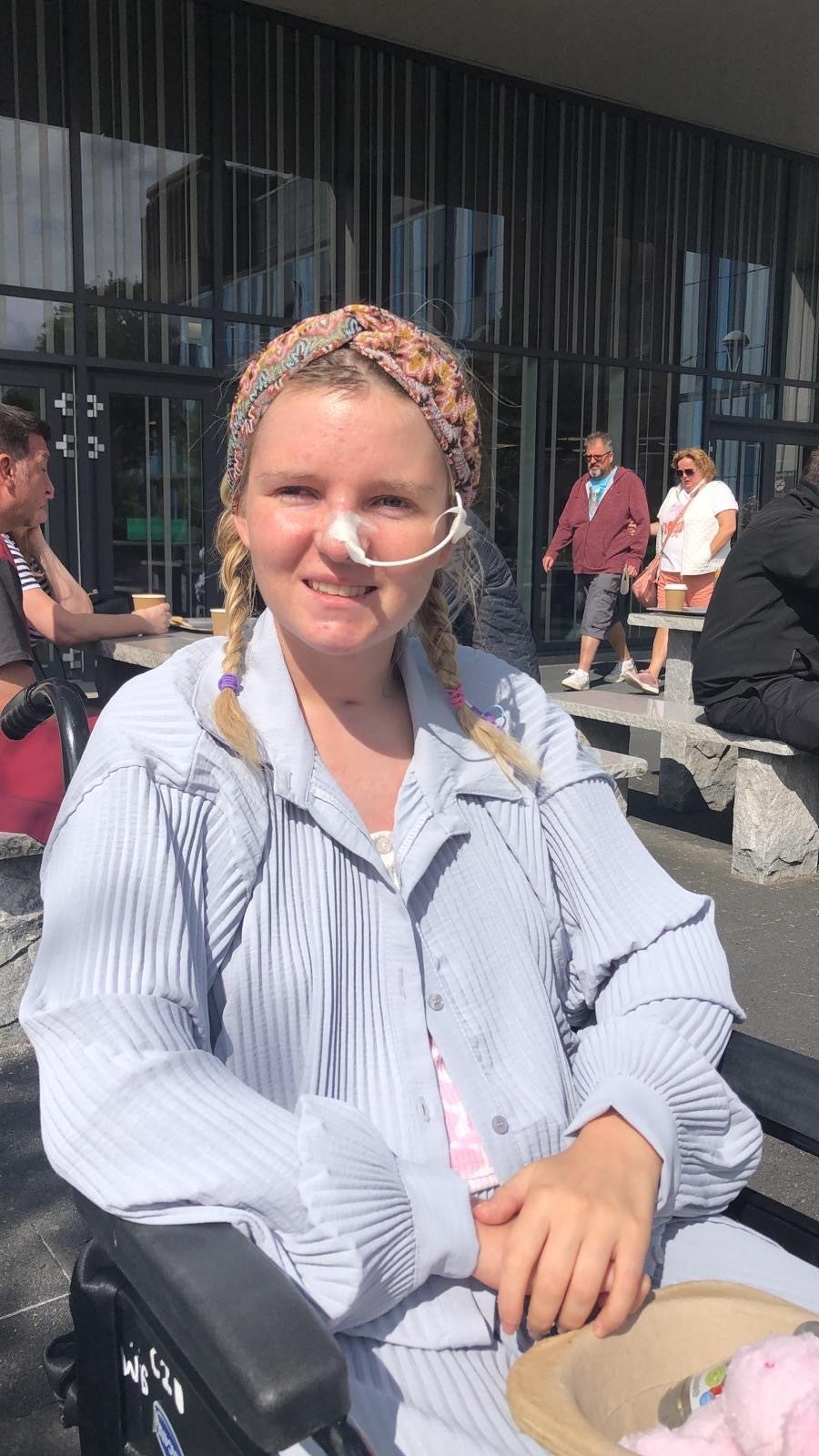A 26-year-old woman who suffered a stroke has described how she could sing before she could speak during her recovery, highlighting the power of music in stroke rehabilitation.
Summer Clarke, from Denton, Manchester, was given a 10 per cent chance of survival after experiencing a spontaneous brain haemorrhage at 24. Her family was told to say their goodbyes as she was placed in an induced coma.
Although Ms Clarke survived, she faced severe complications, including having to relearn basic skills like reading and walking. Remarkably, she could sing her favourite songs word-for-word before she could even recognise her own mother.
Ms Clarke’s experience is not unique. A new poll by the Stroke Association of 1,000 stroke survivors revealed that 35 per cent were able to sing better than speak in the aftermath of their stroke.
The survey found that 33 per cent lost the ability to speak altogether, while 26 per cent could sing or hum before regaining speech. A significant 61 per cent reported that music aided their communication recovery, with half also noting improvements in memory.

The Stroke Association explains that research suggests singing can be a powerful tool for enhancing communication and speech in individuals with aphasia, a language and communication disability affecting speech, reading, writing, and language comprehension.
Ms Clarke is now supporting the charity’s new Sing4Stroke campaign. Her stroke occurred two years ago during an afternoon with friends. After experiencing severe head pains and sudden illness, she was rushed to hospital, where doctors discovered the brain haemorrhage and placed her on life support.
He mother Linda Clarke said: “The doctors did a draining procedure but the pressure on her brain was immense. I was told that she might have 48 hours to live and we should maybe say our goodbyes.
“She was given a 10 per cent chance of survival – it was terrifying.”
But two weeks after being put in an induced coma, Ms Clarke started to move a little finger.
She was taken out of a coma and started to breathe again on her own.
But this was just the start of her nine-month stint in hospital and Ms Clarke needed to learn to read and walk again.
“It was like being a baby again, I had to learn everything from scratch,” she said.

During the recovery process, it was found Ms Clarke could sing her favourite songs before she could perform many other tasks.
Her mother said: “Summer suffered with so many cognitive problems but singing just came naturally to her. She could sing to music when she came out of the coma. She would start by miming songs and then she could sing anything on her playlist.”
She said her daughter’s favourite song during recovery was Proud Mary by Tina Turner.
Ms Clarke, who worked as cabin crew for British Airways before her stroke, added: “Anything we played I remembered the lyrics to, even if I didn’t recognise my own mum, it was all very strange.”
Juliet Bouverie, chief executive of the Stroke Association, said: “Singing can be a powerful tool in stroke recovery for those who experience communication difficulties.
“Because music and singing are processed in a different part of the brain to spoken language, some people with communication problems find that they can sing easily, even though speaking is difficult.”
The charity has launched a new campaign urging people to raise money by singing.
“There are now over 1.4 million stroke survivors in the UK, and this number is growing,” said Ms Bouverie.
“The impact of a stroke can be completely life-altering. We believe everyone deserves to live the best life they can after stroke, but to do this we need your support.”


